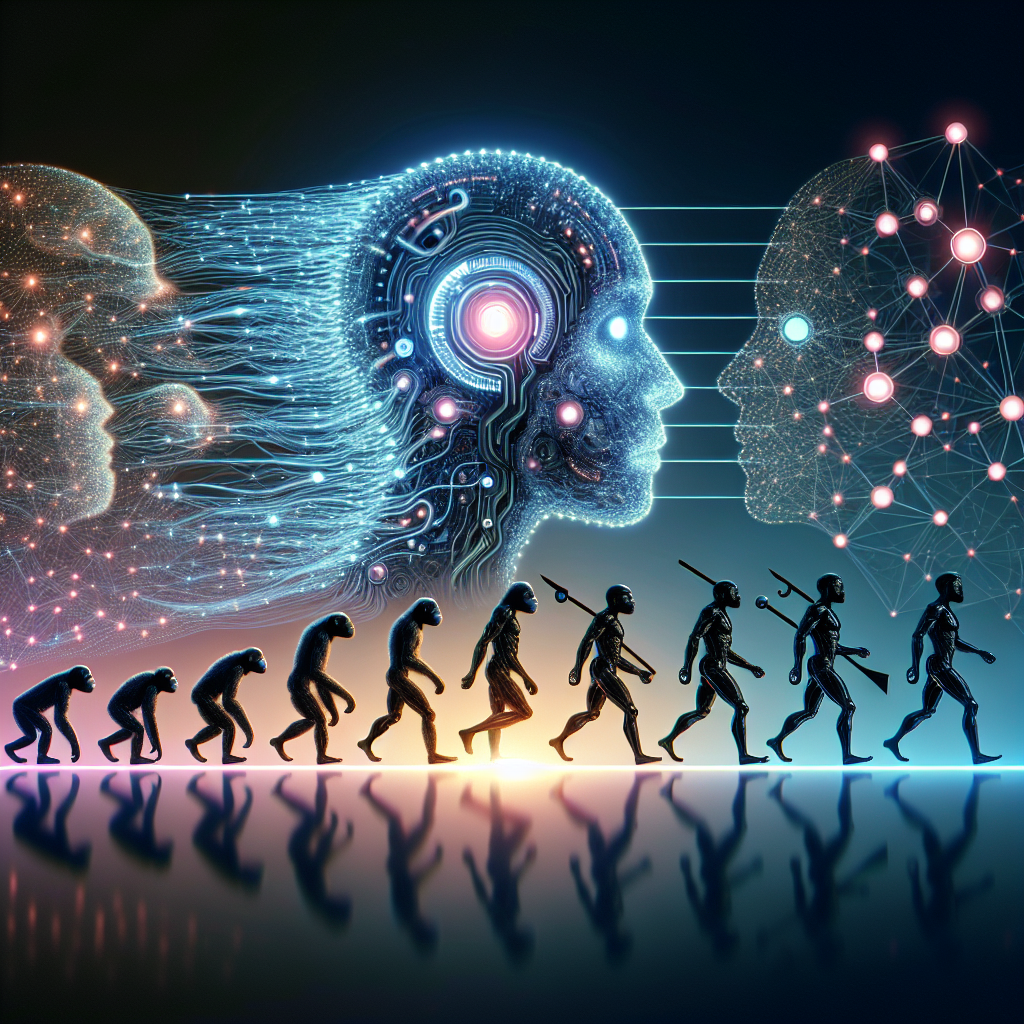Artificial General Intelligence (AGI) has the potential to revolutionize the way we live, work, and interact with the world around us. As we continue to develop more advanced AI systems, it is important to consider the implications that AGI may have on human evolution. In this article, we will explore the possible impacts of AGI on human evolution and discuss how we can prepare for the changes that lie ahead.
The Rise of AGI
AGI refers to a form of artificial intelligence that possesses the ability to understand, learn, and apply knowledge across a wide range of tasks. Unlike narrow AI systems, which are designed to perform specific tasks, AGI has the capacity to think and reason like a human being. This level of intelligence has the potential to greatly enhance our capabilities and transform the way we interact with technology.
As we continue to make advancements in AI research, the development of AGI becomes increasingly likely. Researchers and engineers are working tirelessly to create AI systems that can surpass human intelligence and perform complex cognitive tasks. While we have yet to achieve true AGI, many experts believe that it is only a matter of time before we reach this milestone.
Implications for Human Evolution
The emergence of AGI will have profound implications for human evolution. As AI systems become more intelligent and capable, they will begin to outperform humans in a wide range of tasks. This could lead to a shift in the balance of power between humans and machines, with AI systems taking on increasingly important roles in society.
One of the most significant impacts of AGI on human evolution is the potential for job displacement. As AI systems become more advanced, they will be able to perform a wide range of tasks more efficiently than humans. This could lead to widespread job loss across many industries, as AI systems take over roles that were previously performed by humans.
In addition to job displacement, the rise of AGI may also have implications for human cognition and behavior. As AI systems become more intelligent, they may be able to assist humans in making decisions and solving problems. This could lead to a reliance on AI for decision-making, potentially altering the way humans think and interact with the world around them.
Furthermore, the development of AGI could lead to advancements in medical technology and genetics. AI systems may be able to analyze vast amounts of biological data and develop new treatments for diseases. This could have a profound impact on human health and longevity, potentially leading to new forms of genetic engineering and enhancement.
Preparing for the Future
As we consider the implications of AGI on human evolution, it is important to prepare for the changes that lie ahead. One of the key challenges will be ensuring that AI systems are developed and deployed in a responsible and ethical manner. This includes addressing issues such as job displacement, data privacy, and the potential for bias in AI algorithms.
In order to prepare for the rise of AGI, it will be important for policymakers, researchers, and industry leaders to work together to develop guidelines and regulations for the development and deployment of AI systems. This will help to ensure that AI is used in a way that benefits society as a whole, rather than exacerbating existing inequalities and injustices.
FAQs
Q: Will AGI lead to the extinction of the human race?
A: While the rise of AGI may have profound implications for human evolution, it is unlikely to lead to the extinction of the human race. However, it is important to consider the potential risks and challenges associated with the development of AGI, and to take steps to mitigate these risks.
Q: How can we ensure that AGI is developed and deployed in a responsible manner?
A: Ensuring that AGI is developed and deployed in a responsible manner will require collaboration between policymakers, researchers, and industry leaders. This includes developing guidelines and regulations for the development and deployment of AI systems, as well as addressing issues such as job displacement, data privacy, and bias in AI algorithms.
Q: What are some of the potential benefits of AGI for human evolution?
A: The development of AGI has the potential to bring a wide range of benefits for human evolution. This includes advancements in medical technology, improvements in decision-making and problem-solving, and new opportunities for genetic engineering and enhancement. However, it is important to consider the potential risks and challenges associated with the rise of AGI.
In conclusion, the implications of AGI on human evolution are vast and complex. As we continue to make advancements in AI research, it is important to consider the potential impacts of AGI on society and to take steps to prepare for the changes that lie ahead. By working together to develop responsible and ethical guidelines for the development and deployment of AI systems, we can ensure that AGI benefits society as a whole and contributes to the advancement of human evolution.

